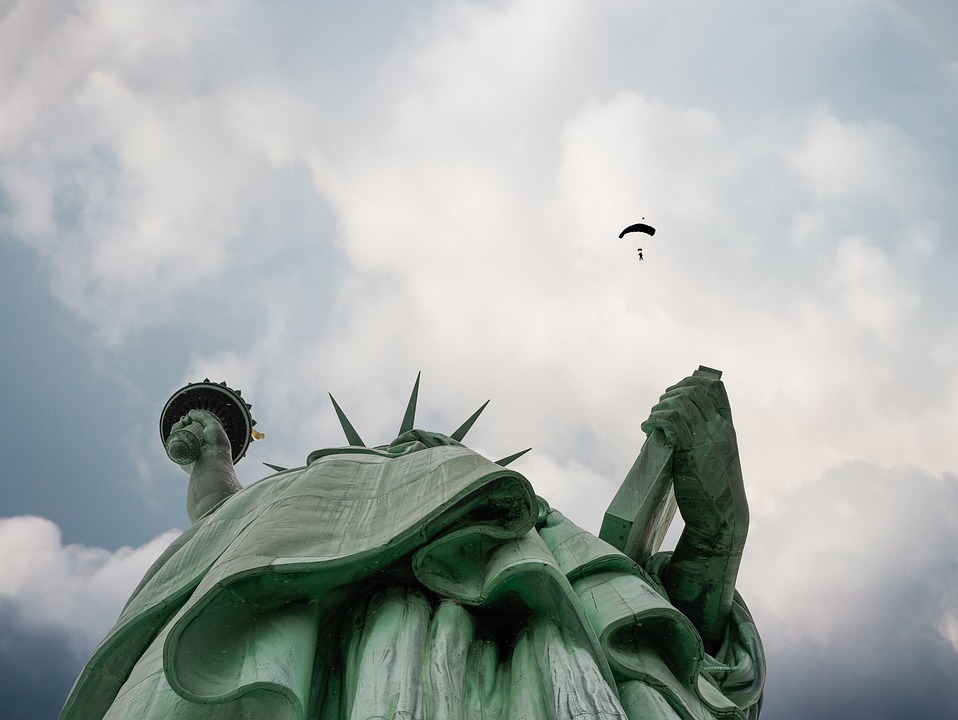“Consider if someone said to you: ‘John obtained that painting illegally,’” Kagan wrote. “You might imagine that he stole it off the walls of a museum. Or that he paid for it with a forged check. Or that he impersonated the true buyer when the auction house delivered it. But in all events, you would imagine illegal acts in some kind of means-end relation — or otherwise said, in some kind of causal relation — to the painting’s acquisition. If someone said to you, ‘John obtained that painting illegally, but his unlawful acts did not play any role in his obtaining it,’ you would not have a clue what the statement meant. You would think it nonsense — or perhaps the opening of a riddle. That is because if no illegal act contributed at all to getting the painting, then the painting would not have been gotten illegally. And the same goes for naturalization. If whatever illegal conduct occurring within the naturalization process was a causal dead-end — if, so to speak, the ripples from that act could not have reached the decision to award citizenship — then the act cannot support a charge that the applicant obtained naturalization illegally. The conduct, though itself illegal, would not also make the obtaining of citizenship so. To get citizenship unlawfully, we understand, is to get it through an unlawful means — and that is just to say that an illegality played some role in its acquisition.”
Kagan continued her artwork example for another paragraph.
“Imagine this time that John made an illegal turn while driving to the auction house to purchase a painting,” the opinion states. “Would you say that he had ‘procured the painting illegally’ because he happened to violate the law in the course of obtaining it? Not likely. And again, the same is true with respect to naturalization. Suppose that an applicant for citizenship fills out the necessary paperwork in a government office with a knife tucked away in her handbag (but never mentioned or used). She has violated the law — specifically, a statute criminalizing the possession of a weapon in a federal building. And she has surely done so ‘in the course of’ procuring citizenship. But would you say, using English as you ordinarily would, that she has ‘procure[d]’ her citizenship ‘contrary to law’ (or, as you would really speak, ‘illegally’)? Once again, no. That is because the violation of law and the acquisition of citizenship are in that example merely coincidental: The one has no causal relation to the other.”
The lead opinion also incorporates an example Chief Justice John Roberts offered at oral arguments, saying a person might drive 5 mph over the speed limit, but check off “no” to a question on the immigrant-naturalization form that asks if the applicant has ever committed a crime for which she was not arrested.
“Under the government’s view,” Kagan wrote, “a prosecutor could scour her paperwork and bring a §1425(a) charge on that meager basis, even many years after she became a citizen. That would give prosecutors nearly limitless leverage — and afford newly naturalized Americans precious little security. Small wonder that Congress, in enacting §1425(a), did not go so far as the government claims. The statute it passed, most naturally read, strips a person of citizenship not when she committed any illegal act during the naturalization process, but only when that act played some role in her naturalization.”
The 16-page ruling concludes with the finding that Maslenjak was not convicted by a properly instructed jury of procuring her naturalization contrary to law. Kagan and her colleagues remanded the case for further proceedings.
Roberts concurred in full, as did Justices Anthony Kennedy, Ruth Bader Ginsburg, Stephen Breyer and Sonia Sotomayor.
Justice Neil Gorsuch meanwhile penned a separate opinion concurring in part and concurring in the judgment, which was joined by Justice Clarence Thomas.
“For my part, I believe it is work enough for the day to recognize that the statute requires some proof of causation, that the jury instructions here did not, and to allow the parties and courts of appeals to take it from there as they usually do,” Gorsuch wrote. “This court often speaks most wisely when it speaks last.”
Justice Samuel Alito penned a opinion concurring in judgment, offering some more examples of false statements.
“Eight co-workers jointly buy two season tickets to see their favorite football team play,” he wrote. “They all write their names on a piece of paper and place the slips in a hat to see who will get the tickets for the big game with their team’s traditional rival. One of the friends puts his name in twice, and his name is drawn. I would say that he ‘procured’ the tickets ‘contrary to’ the rules of the drawing even though he might have won if he had put his name in only once.”
The point is, Alito continued, that Section 1425 of Title 18 “does not require that an illegal false statement have a demonstrable effect on the naturalization decision.”
“Instead, the statute applies when a person makes an illegal false statement to obtain naturalization, and that false statement is material to the outcome,” he added. “I see no indication that Congress meant to require more.”
 Follow @bleonardcns
Follow @bleonardcns
Subscribe to Closing Arguments
Sign up for new weekly newsletter Closing Arguments to get the latest about ongoing trials, major litigation and hot cases and rulings in courthouses around the U.S. and the world.
 WASHINGTON (CN) - Lies alone should not cost immigrants their citizenship, the Supreme Court ruled Monday, carving out an exception for false statements that carry little weight in naturalization proceedings, such as a fib about one’s weight.
WASHINGTON (CN) - Lies alone should not cost immigrants their citizenship, the Supreme Court ruled Monday, carving out an exception for false statements that carry little weight in naturalization proceedings, such as a fib about one’s weight.








